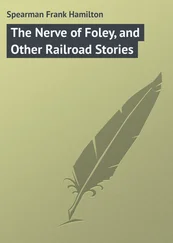Phil Dick’s third major theme is his fascination with war and his fear and hatred of it. One hardly sees critical mention of it, yet it is as integral to his body of work as oxygen is to water.
Perhaps Dick, who began his writing career in Berkeley, California, absorbed the sensibilities of a town that had a carefully nurtured liberal commitment. Perhaps Joe McCarthy and the Korean War sensitized a beginning writer’s imagination. We know little of his juvenile years during the Second World War. But we can identify, early and consistently, a mistrust of the military mentality, a fear of what he had seen of the total war machine on either side. He had a great disinclination to accept the slogans of the period that supported the ends over the means. Victory at all cost for Democracy, for Freedom, for the Flag are hollow aphorisms when the price of victory is totalitarian submission to a heartless military bureaucracy: Phil feared this particular future for all of us.
From Phil’s earliest stories, The Defenders, The Variable Man, A Surface Raid and To Serve the Master, to his later fiction, such as Faith of Our Fathers, and The Exit Door Leads In, the winners and the losers show their humanity largely in their rejection of warfare and aggression. For Dick, the only acceptable struggle was against the evil he recognized as “the forces of dissolution.” Phil Dick was anti-military long before it became fashionable in the Sixties. He continued, through his whole career, to value humanity and its foibles, no matter how small and vulnerable, over the organized terror of the modern state, no matter how expedient.
So here it is; a look into an eclectic and vigorous mind. This indispensable collection of Phil Dick’s less than novel-length fiction may disturb you. It may frighten you, because some of Phil’s people live very close to home. But these stories will not leave you unchanged. A strange wind may blow through your door late at night, and the shadows of familiar objects may quiver in the light. Is some Palmer Eldritch figure hurrying now to approach our world? Even if you’re not a pre-cog, don’t say you weren’t warned.
Introduction by Roger Zelazny
When I was approached to write this introduction I declined. It had nothing to do with my attitude toward Phil Dick’s work. It was, rather, because I felt that I had already said everything I had to say on the subject. It was then pointed out to me that I had said these things in a variety of different places. Even if I had nothing to add, a judicious rehashing in a place such as this might do a service for readers who, in all likelihood, hadn’t seen or heard it all before.
So I thought about it. I also looked at some of the things I had written earlier. What might be worth repeating, what worth adding, after this time? I had only met Phil on a few occasions, in California and in France; and it had almost been by accident that we had once fallen into collaborating on a book. During our collaboration we had exchanged letters and spoken often on the telephone. I liked him and I was very impressed by his work. His sense of humor generally came through in our phone conversations. I remember once when he mentioned some royalty statements he’d just received. He’d said, “I’ve gotten so-and-so many hundred in France, so-and-so many hundred in Germany, so-and-so many hundred in Spain… Gee! this sounds like the catalog aria from Don Giovanni!” It was always a more immediate form of verbal wit than the cosmic ironies he played with in his fiction.
I’d said something about his humor before. I’d also remarked on the games he played with consensus reality. I’d even generalized a bit about his characters. But why paraphrase when after all these years I’ve finally found a legitimate reason for quoting myself?
These characters are often victims, prisoners, manipulated men and women. It is generally doubtful whether they will leave the world with less evil in it than they found there. But you never know. They try. They are usually at bat in the last half of the ninth inning with the tying run on base, two men out, two strikes and three balls riding, with the game being called on account of rain at any second. But then, what is rain? Or a ballpark?
The worlds through which Phil Dick’s characters move are subject to cancellation or revision without notice. Reality is approximately as dependable as a politician’s promise. Whether it is a drug, a time-warp, a machine or an alien entity responsible for the bewildering shifting of situations about his people, the result is the same: Reality, of the capital “R” variety, has become as relative a thing as the dryness of our respective Martinis. Yet the struggle goes on, the fight continues. Against what? Ultimately, Powers, Principalities, Thrones, and Dominations, often contained in hosts who are themselves victims, prisoners, manipulated men and women.
All of which sounds like grimly serious fare. Wrong. Strike the “grimly,” add a comma and the following: but one of the marks of Phil Dick’s mastery lies in the tone of his work. He is possessed of a sense of humor for which I am unable to locate an appropriate adjective. Wry, grotesque, slapstick, satirical, ironic… None of them quite fits to the point of generality, though all may be found without looking too far. His characters take pratfalls at the most serious moments; pathetic irony may invade the most comic scene. It is a rare and estimable quality to direct such a show successfully.
I’d said that in PHILIP K. DICK: ELECTRIC SHEPHERD (edited by Bruce Gillespie, Norstrilia Press, 1975), and I still agree with it.
It is good now to see that Phil is finally getting some of the attention he deserved, both critically and at the popular level. My main regret is that it comes so late. He was often broke when I knew him, past the struggling author age but still struggling to make ends meet. I was heartened that for his last year or so he finally enjoyed financial security and even a measure of affluence. The last time I saw him he actually seemed happy and looked a bit relaxed. This was back when Bladerunner was being filmed, and we spent dinner and a long evening just talking, joking, reminiscing.
Much has been made of his later mysticism. I can’t speak with firsthand knowledge of everything he might have believed, partly because it seemed to keep changing and partly because it was often difficult to know when he was kidding and when he was serious. My main impression from a number of conversations, though, was that he played at theology the way other people might play at chess problems, that he liked asking the classic science fiction writer’s question—”What if?”—of anything he came across in the way of religious and philosophical notions. It was obviously a dimension of his work, and I’ve often wondered where another ten years would have taken his thinking. Impossible to guess now, really.
I recall that, like James Blish, he was fascinated by the problem of evil, and its juxtaposition with the sometime sweetness of life. I’m sure he wouldn’t mind my quoting from the last letter I received from him (dated 10 April 1981):
Two items were presented to me for my inspection within a period of fifteen minutes: first, a copy of WIND IN THE WILLOWS, which I had never read… A moment after I looked it over someone showed me a two-page photograph in the current Time of the attempted assassination of the President. There the wounded, there the Secret Service man with the Uzi machine gun, there all of them on the assassin. My brain had to try to correlate WIND IN THE WILLOWS and that photograph. It could not. It never will be able to. I brought the Grahame book home and sat reading it while they tried to get the Columbia to lift off, in vain, as you know. This morning when I woke up I could not think at all; not even weird thoughts, such as assail one upon rising—no thoughts, just a blank. As if my own computers had, in my brain, ceased speaking to one another, like at the Cape. It is hard to believe that the scene of the attempted assassination and WIND IN THE WILLOWS are part of the same universe. Surely one of them is not real. Mr. Toad sculling a little boat down the stream, and the man with the Uzi… It is futile to try to make the universe add up. But I guess we must go on anyhow.
Читать дальше












